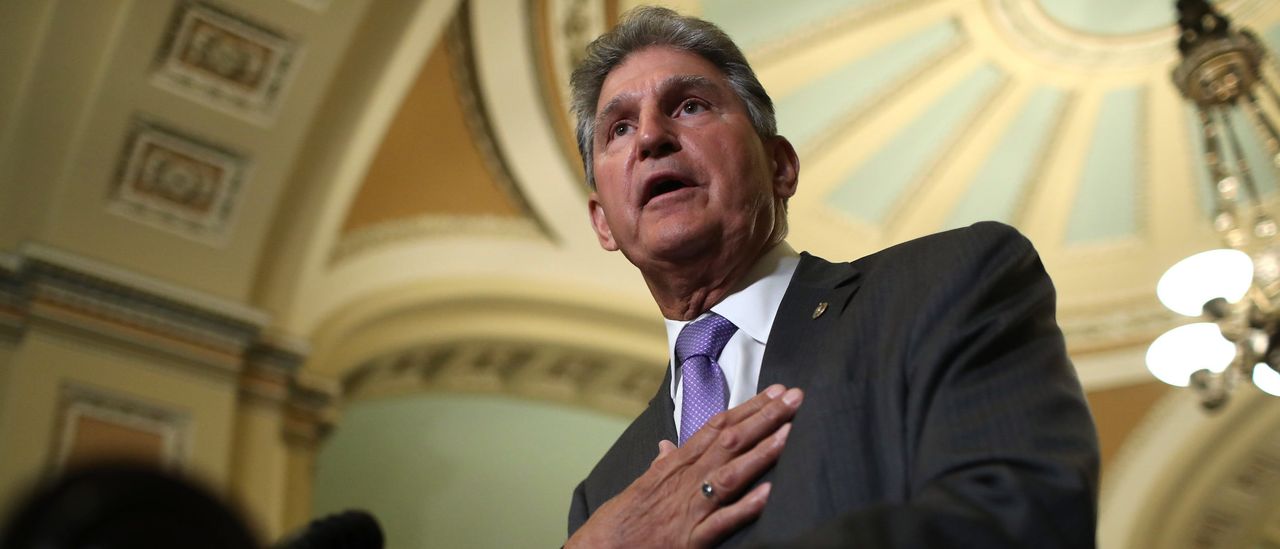By: The Editorial Board – wsj.com – November 10, 2021
For something we’re told is “transitory,” inflation sure is persistent. The latest evidence arrived with a jolt Wednesday when the Labor Department reported that consumer prices jumped 0.9% in October, or 6.2% from a year ago and the fifth straight month higher than 5%.
That’s also the fastest rate since 1990, despite reassurances since March from the White House, Federal Reserve and Keynesian economists that inflation would soon vanish. It follows Tuesday’s report that wholesale prices rose 0.6% in October, or 8.6% from a year earlier. Producer prices flow into consumer prices, assuming businesses believe they have enough market power.
That’s not all the bad news. In a separate report Wednesday, the Labor Department said average hourly earnings after inflation fell 0.5% in the month. Real wages are down 2.2% since January. American purchasing power has declined, and the average standard of living has fallen, despite unheard of levels of government spending.
Monthly percent change in real average hourly earnings for all employees, seasonallyadjusted, January–October 2021Source: Bureau of Labor Statistics
Or we should say because of that spending. It’s important to understand that the current burst of inflation isn’t an accident, like getting hit by a reckless driver. This is the result of reckless policy.
Congress and the White House flooded the economy with $1.9 trillion in new spending in March, after about $4 trillion in Covid relief in 2020. The goal was to goose economic demand, though the economy was recovering smartly by summer 2020. That needless demand stimulus has coincided with Biden policies that squeeze the supply of goods and services. This is the cause of the famous supply-demand mismatch.
Democratic transfer payments that reduce the incentive to work have created the worst labor shortage in decades. Half of all small businesses report they can’t fill open positions no matter how much they increase wages. Vaccine mandates are now compounding the shortage. Been to a restaurant lately? Chances are your waiter was also busing tables and he may have been the cook too.
The Biden tax and regulatory agenda is already reducing the supply of goods, notably in energy. Gasoline and natural gas prices have climbed amid higher global demand but dampened U.S. production. President Biden and his aides are trying to put U.S. drillers out of business while begging the OPEC+ cartel to produce more oil.
The Administration wants to stop all drilling on federal land and it is studying whether to kill the Line 5 pipeline from Canada to the Midwest amid soaring prices for propane and other petroleum liquids. It is pressing financial regulations to deny capital for fossil fuels.
Then there’s the Fed, which is still running an emergency monetary policy 19 months into a recovery with a jobless rate of 4.6%. The asset-purchase taper it announced last week doesn’t mean much as the Fed is still growing its balance sheet and keeping interest rates near zero.
Fed Chairman Jerome Powell was also a cheerleader for the March spending blowout, though fiscal policy isn’t his job. What does it say that Mr. Biden may reappoint Mr. Powell to another four-year term when the Fed’s target inflation rate is 2% and he has overshot that target by more than three times?
The Biden Administration has no idea what to do about this other than demand more of the same. Mr. Biden issued a statement Wednesday claiming all is well because “in the few days since the data” for the October price report was collected, natural gas prices have fallen. Oh, and he’s asked the Federal Trade Commission “to strike back at any market manipulation or price gouging.” He said his infrastructure bill will solve supply shortages, though most of the money won’t be spent until 2024. We haven’t seen such incompetence since Jimmy Carter.
The reaction from the Keynesian economists whose advice Mr. Biden is following has been to move the policy goalposts. Price increases may be more persistent than they predicted but now they say more inflation is good. The economy needs to run hot so wages rise faster—never mind that nominal wage gains might be wiped away by inflation.
There’s no doubt inflation is good for the government. Soaring nominal GDP growth means higher nominal business profits and more tax revenue. It also pushes individuals into higher tax brackets, giving the feds another windfall. Politicians prosper while average Americans struggle.
This inflation surge is all the evidence Sen. Joe Manchin needs to stop his party from building back worse. The West Virginian warned months ago about spending and inflation, and he’s been proven right. He said last week he wouldn’t “support a package that risks hurting American families suffering from historic inflation.” He said he wants “greater clarity about why Congress chooses to ignore the serious effects inflation and debt have on our economy and existing government programs.”
Congress ignores inflation because it doesn’t want to admit that its policies are the leading cause. Kill the bill and rescue the American middle class.
To see this article and subscribe to others like it, choose to read more.
 Listen Online
Listen Online Watch Online
Watch Online Find a Station in Your Area
Find a Station in Your Area









 Listen Now
Listen Now Watch Online
Watch Online
